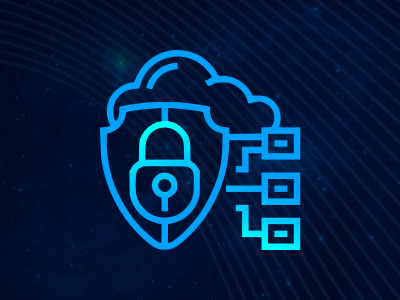Running multiple accounts with Astro
30 July 2020
A proxy server is a technical element that mediates a connection (data exchange) between a user and a target resource. As the global competition increases and everyone strives to secure themselves against online threats, there is a growing demand for reliable proxy connections. The segment continues to evolve, and now there are several types of proxy servers, which differ in structure, functionality and security level.
Whatever type of proxy you choose (residential, datacenter, backconnect, etc.), you must be sure it serves your goals and objectives and provides the needed amount of security. This post describes why residential proxies are favored by those who want to run several social media or seller accounts at the same time.
Why run multiple accounts?
Running several accounts from one device, platform or app is a common practice. It helps individuals and business people promote their brands and finally take up a niche in the market quickly. Mostly, this tactics is used by those who own several online stores or actively use social media (Facebook, Twitter, Instagram, etc.), email, messengers, as promotion tools (SMM). It is not uncommon for these users to diversify their businesses and create a separate account for each business segment and/or team. Also, the more accounts you have, the less time it takes for you to embrace a large audience and go worldwide.
Also, it is more reasonable to separate work from personal matters and create two accounts on one platform – one for personal purposes and the other one for discussing business matters. This is a much safer way of running a business, because you are less likely to accidentally disclose important, corporate or confidential information to third parties.
Running multiple accounts can be a challenge, because social media platforms and messengers are wary of this practice. Facebook, for example, prohibits having more than one account, so once they spot an attempt to run two accounts from a single IP, they red-flag the user. Instagram does allow several accounts, but many users find limits (5 accounts per mobile device) too strict for running a good-sized business. Finally, in 2019 Instagram launched a massive update of its automation detection algorithms with a tidal wave of blocks ripping through the community.
Finally, target websites tend to be very suspicious about same-IP visits from different accounts and block IPs once they detect this kind of activity. This can be gut-wrenching for users, for who running several accounts is a source of income. Happily, there are effective and lawful ways around this.
Connect via a residential proxy
Astro is a rapidly growing company offering a whole bunch of advanced techniques and solutions and helping users from around the world run their businesses online.
Astro is a legal distributed residential proxy network, and our pool of residential IPs embraces several countries: Russia, Ukraine, Kazakhstan, Belarus, Finland, Turkey, France, Germany, Canada, Chile. If you are a SMM specialist or have other reasons to run multiple accounts, you can sign up with Astro, choose a plan, and we will help you connect to any residential IP in any of these countries.
How it works
Residential proxies rely on a technique that not only masks your IP address behind another one (the proxy’s), but also makes you look to websites like a real user. It is because a residential proxy server is nothing less than a real user’s (a home owner’s) device, which is connected to the Internet via an IP assigned by an Internet service provider (not a datacenter) to the home owner’s mobile device or PC.
Another big plus is the use of the NAT (Network Access Translation) technology. It allows large groups of users to connect to just one IPv4 (because there are much more users than IPv4s). Even though target websites do see lots of visits from the same IP address, as scores of users share a whitelist IPv4, they don’t red-flag it because:
- They fully and completely trust residential IPs;
- For a website, blocking just one IPv4 would mean blocking a whole pool of its own audience.
In general, residential IPs are highly trusted by websites and do not make them feel suspicious, because IPs belong to real users.
Astro opens lots of venues for social media marketing (SMM), which does involve running multiple accounts. We use technologies allowing our customers to use account management automation bots like Jarvee and Multilogin and thus ease their work without violating target websites’ rights. With these at hand, you can schedule your social media activities, such as sharing/adding/deleting content, following/unfollowing threads, sharing/adding/deleting pictures and videos, etc. With these social media automation tools at hand you can do all these things over seconds. Astro integrates well with these and many other such applications.
Residential and Datacenter Proxies
Both types of proxies are used for hiding users’ IP addresses behind new ones to help them run a batch of accounts without getting blocked. Datacenter proxies are provided by datacenters, and they are more commonly used than residential proxies. This fact plays against these proxies pretty much: websites are increasingly aware that datacenter IPs are used as ways around blocks and may ban an IP once they realize it is a datacenter IP.
Residential proxy networks, such as Astro offer so called rotating (backconnect) proxies. Astro will set these up to switch between IPs within a pool at set intervals of every time you connect. This will make it impossible for websites to track your browser fingerprints, location, so you can run your multi-account campaign without fearing a ban. Social media will not block you, because we create a real picture of user activity for them and they do need audience to thrive and prosper.



